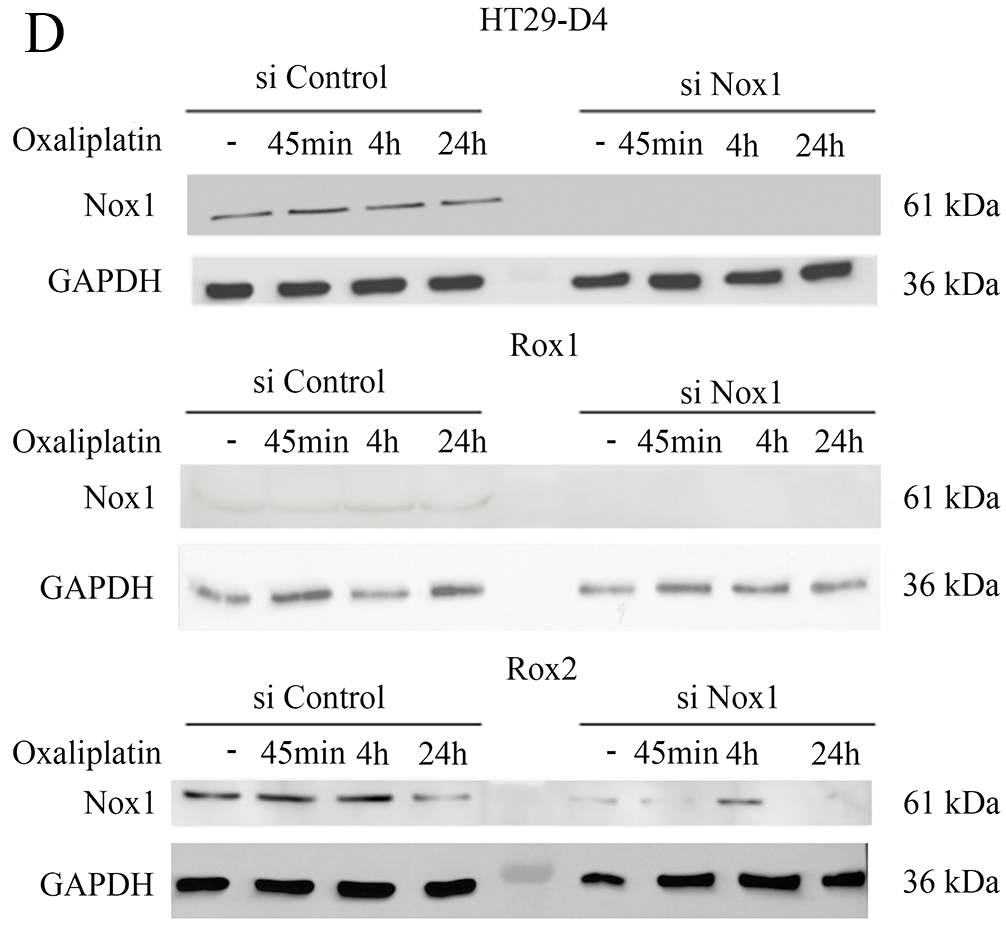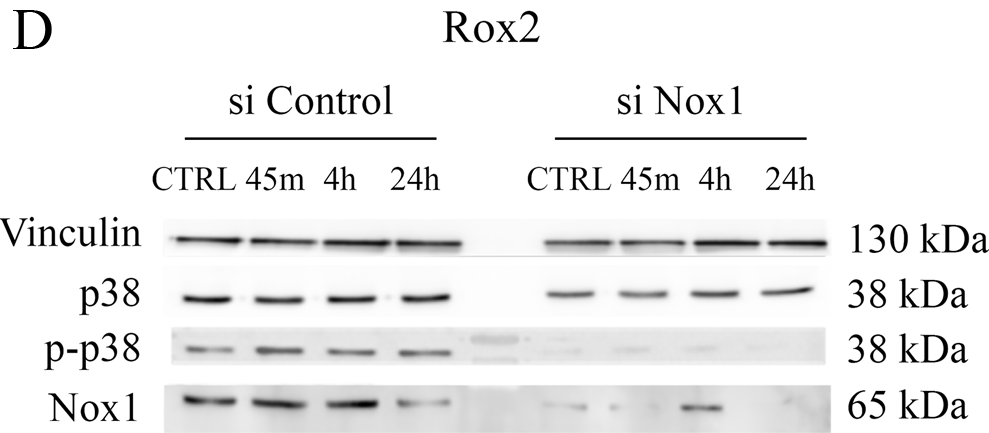Corrections:
Correction: Reversion of resistance to oxaliplatin by inhibition of p38 MAPK in colorectal cancer cell lines: involvement of the calpain / Nox1 pathway
Metrics: PDF 1406 views | ?
1Aix-Marseille Université, INSERM, CRO2 UMR_S 911, Marseille 13385, France
Published: June 01, 2018
This article has been corrected: The correct figures are given below: The authors declare that these corrections do not change the results or conclusions of this paper.
Original article: Oncotarget. 2017; 8:103710-103730. DOI: https://doi.org/10.18632/oncotarget.21780.

Figure 2: Implication of Nox1 in oxaliplatin-induced ROS production and cytotoxicity. (D). Transfected cells were also seeded in white 96-well plates to perform lucigenin assays.

Figure 3: Study of calpain expression, activity and implication in oxaliplatin-induced cytotoxicity. (C). The transfected cells were also seeded to perform 72-hour cytotoxicity assays (C). Asteriks indicate a statistical significance with p<0.05.

Figure 7: Implication of p38 in the resistance to oxaliplatin. (B to D). Cytotoxicity assays were performed with HT29-D4, Rox1 and Rox2 treated with oxaliplatin and incubated in the absence (Control) or in the presence of SB203580, a specific inhibitor of p38 (5 μM).
 All site content, except where otherwise noted, is licensed under a Creative Commons Attribution 4.0 License.
All site content, except where otherwise noted, is licensed under a Creative Commons Attribution 4.0 License.
PII: 25605